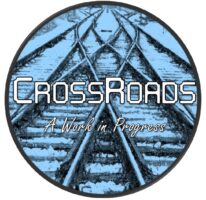
Many people in my experience seem to self-identify as being “math-illiterate” or simply not capable of learning math subjects. There are obviously many barriers that can get in the way of a learning experience, but are any of these unique to mathematics? Although this is a complex question, I think we can pinpoint a few weaknesses of the modern classroom (particularly high-school classes) and offer a solution. One of the major reasons that many students are left behind in the math classroom I think is that the subject is highly cumulative. That is; the ability of students to learn new concepts depends strongly on their understanding old content and concepts. This is an issue for learning institutions which adhere to the instructional paradigm of learning. (i.e. focus is on quality of instruction rather quality of learning) Although this is an issue to varying degrees for most disciplines, I think it’s especially true of mathematics learning. To me this indicates that learning centred approaches to math learning could pose great advantages for students, in particular learning experiences which fix the level of student learning rather than the time spent learning.
One way to achieve this is to use online learning modules, MOOCs (Massive Open Online Courses), or other free online learning resources for mathematics. These could range from a short youtube video explaining a concept – to a full fledged self-guided course. Let’s discuss how we might integrate these resources into our students’ learning and what advantages they could have.
Accessible and Learning Centred
In many countries like Canada and the United States, one of the most obvious barriers to learning at least for higher education is the cost of attending these learning institutions. This makes these learning environments inaccessible to individuals who are unable to pay for them. Many online learning resources, particularly MOOCs, are free to access for individuals who own a computer and have internet. Although this doesn’t include everyone, it is clearly a step in the right direction in terms of accessibility. One other key advantage of these resources that is particularly important for math learning is that they are self-paced, meaning the students choose the pace of learning. A MOOC may be split into a sequence of several modules or pages each of which students will complete in order at their own pace. The importance of this is that if implemented correctly; the learning of the student is fixed rather than the amount of time they spend learning.
What is available online already?
You might be wondering now: what math learning resources are already available online? For a while Youtube has been a popular medium for sharing math learning, most often in the form of lecture videos. Although this alone is arguably a poor substitute for a in class learning experience, videos and other media can be incorporated into a more valuable learning environment like a MOOC or learning module. There seems to be many resources like this for math learning online. One popular organisation called Khan Academy offers free learning modules particularly for math subjects up to a 2nd year Post-Secondary level. This resource in particular seems excellent for early math learning. Another website called Coursera is a host for MOOC courses which may provide learning experiences that are more focused in specific math subject areas. Most of these courses cover early undergraduate topics but a few cover advanced undergrad / early graduate level topics. Courses on this site seem excellent for providing university quality education without the price tag.
What should students and teachers take away from this?
Hopefully this convinces you that these online learning resources can have advantages for math education. These resources can be integrated into current classrooms, or used as the main source of learning. In particular, students can use these resources either to fill gaps in their knowledge and expand their understanding of math topics. Instructors should try to incorporate these resources into their own courses by linking to relevant online resources (short videos and learning modules in particular) on the course website. Additionally instructors may wish to contribute to the growing body of online resources for math education. Although websites like coursera have a few courses on advanced topics, there seems to be shortage of online resources for more advanced topics in mathematics, particularly at the graduate level. Sharing your knowledge on these topics is a great way to give back to the mathematics community!
